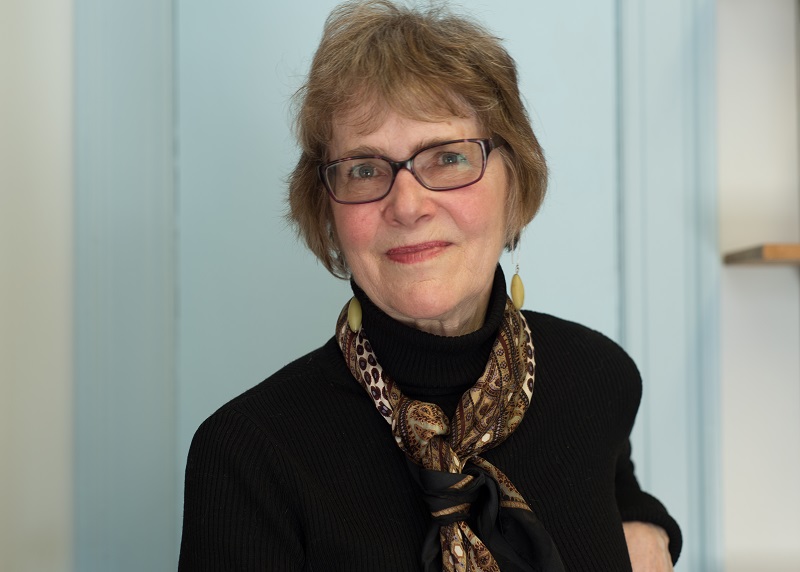Canadian scholar Sharon Batt sheds light on issues within the healthcare system and her experience with health activism
Award-winning journalist and women’s studies scholar Sharon Batt discussed feminist health activism and social justice on March 6, as part of the Simone de Beauvoir Institute’s Feminist Café event.
Batt discussed her experience with social activism, the health system, wage disparities and intersectionality. She talked about the importance of understanding the health system—specifically the pharmaceutical industry—and the issues within it.
Batt said neoliberalism hasn’t delivered on its promises of equality. Neoliberalism is an altered version of liberalism that focuses on free-market capitalism. “Instead, we have rising inequality, unsustainable drug prices, and pharma-funded patient advocacy not serving patient interests,” Batt said.
Batt first became an activist in the 1970s. In 1973, she and a friend founded Branching Out, Canada’s first national feminist magazine. The magazine, which was active until 1980, was initially only distributed in Edmonton before becoming available in other provinces.
“That’s when I got involved in the women’s movement and doing grass-roots community work,” Batt told The Concordian. “We wanted to have a high-quality magazine that focused on feminist contributors and political issues. It got me excited about journalism, feminism and working in a community,” she said.
In 1988, Batt was diagnosed with breast cancer. She was treated for breast cancer from 1988 to 1989. She was also diagnosed with colon cancer in 2005, and was treated successfully.
Batt was a feminist activist through her journalistic work long before her diagnosis and treatments. However, after being diagnosed, she increasingly focused on health activism.
In 1994, she wrote her first book, Patient No More: The Politics of Breast Cancer. In her book, Batt offers a critical look into the cancer treatment “industry.” In 1991, she co-founded Breast Cancer Action Montreal, a group to help women fighting the disease. “I was working in the community with women who were feminists,” she said.
After working at the national level for the breast cancer awareness movement, Batt moved to Halifax to teach women’s studies at Mount Saint Vincent University for two years, where she was the Nancy’s Chair in Women’s Studies. The Chair title was named after Nancy Ruth, a renowned feminist and activist.
Batt said her experience with community work and academia is what brought her to Concordia. “This is one of the reasons I got the position [at the Simone de Beauvoir Institute] as a scholar,” Batt told The Concordian.
Batt was part of the second wave of feminism through the work of her magazine in the late 1970s. During that period, she learned that women’s health issues were undervalued. “There was a lot of interest in money [during the second-wave women’s movement], including cut-backs, and it was a hard period,” Batt said. She emphasized that the government focused more on economic issues, rather than on human rights and equality. “There was a conservative agenda for the last 20 years,” Batt explained.
Batt said she’s interested in getting to the root of cancers that affect women. “We need to understand why so many women get these diseases. A lot of them are environmentally-related. This is one of the reasons why I co-founded Breast Cancer Action Montreal—to raise awareness on prevention and the need to reduce toxic chemicals that can lead to cancer,” Batt said.

Now, the focus of the organization is on younger women and prevention. “We’ve worked on a project called FemToxic, which looked at chemicals in makeup and how to educate young women. This is new for us, since, when we started out, the focus was more on older women,” Batt said. “Touching younger women helps to bring more prevention. There are many things that younger women can learn from my generation.”
Batt’s message to Concordia students, especially female students: “Be engaged in the women’s movement. We all come into feminist politics for different reasons, and the passion you have for your own issues is vital,” she said. “Don’t be afraid to bring your issues to the floor, even if they may not be the central issues right now. Listen to other women who have different issues. We need a lot more conversation and communication on the diversity of issues that affect women.”
As for the future, Batt hopes to see change in the pharmaceutical industry and a reduction in the cost of breast cancer treatments.
Through her upcoming book, Health Advocacy, Inc.: How Pharmaceutical Funding Changed the Breast Cancer Movement, Batt hopes to educate people on health policy and women’s healthcare. “Medications are overpriced. I think community groups that are involved [in activism] need to voice that [issue], even if they are afraid,” she said. The book will be released on June 1.




